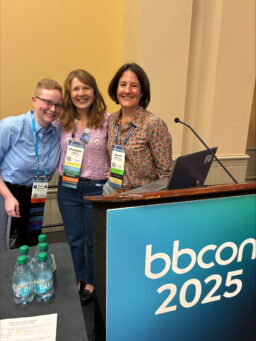ST. PETERSBURG, Fla. – Excelsior University, a pioneer in online education, will open the first standalone on-ground learning site in its five-decade history this fall in St. Petersburg, Florida. Excelsior University St. Petersburg opens its doors to students beginning Oct. 20. Excelsior University St. Petersburg – located on 4th Street N – will enhance the institution’s comprehensive online education with immersive in-person learning opportunities. Excelsior is currently enrolling students in hybrid Bachelor of Science in Cybersecurity, Master of Science in Cybersecurity, and Bachelor of Science in Electrical Engineering Technology degree programs for the Spring I Term, with classes beginning Jan. 5, 2026. The new St. Petersburg site offers hands-on learning and lab space for students in these vital fields, a brick-and-mortar complement to the institution’s history of innovation in distance and online education. Health care programming is planned to open to enrollment in early 2026.
In collaboration with career training leader Medcerts, Excelsior is now offering pre-degree certification programs and select hybrid lab training aligned with in-demand careers in allied health and IT at the St. Petersburg site. This partnership offers students access to workforce-ready training programs and onramps to further education with Excelsior. From October to December, students in select certificate programs will have access to complimentary practical hands-on training to supplement their online learning.
With more than 200,000 graduates positively impacting communities around the globe, Excelsior’s expansion into hybrid learning is the next phase of its mission to provide accessible education to all learners.
“Modern learners need flexibility,” said Excelsior University President David Schejbal. “While many students thrive in a fully online classroom, Excelsior University St. Petersburg presents new opportunities for learners to build community and hone the practice-ready skills that the workforce demands. With this site, Excelsior delivers on its promise to meet students where they are – academically, geographically, in-person, or online.”
Headquartered in Albany, New York, Excelsior established its first on-ground learning site in St. Petersburg for many reasons. The site provides new opportunities for Excelsior faculty and staff to strengthen their connections with the large community of 500 current Excelsior students and nearly 17,000 alumni in Florida. With a strong focus on technology and health care, Excelsior’s programs are positioned to help learners gain the knowledge and skills needed to succeed in Florida’s major industries. With veterans and active-duty military students comprising more than 30% of its current enrollment, the institution’s long history of serving the nation’s service members makes Excelsior University St. Petersburg a destination for Florida’s military learners. More than three-quarters of Excelsior’s 2024 technology program graduates were military-affiliated, driving the decision to bring hybrid versions of the cybersecurity and electrical engineering technology programs directly to this center of the military student population.
For more information on Excelsior University, visit excelsior.edu.
# # #
Media contact Excelsior University:
Erin Coufal, ecoufal@excelsior.edu, 518-608-8498
ABOUT EXCELSIOR UNIVERSITY
Excelsior University is an accredited, not-for-profit higher education institution focused on helping learners complete their degrees and advance their careers. Excelsior contributes to the development of a diverse, educated, and career-ready society by valuing lifelong learning with an emphasis on serving individuals historically underrepresented in higher education. Founded in 1971 in Albany, New York, Excelsior meets students where they are — academically and geographically — removing obstacles to the educational goals of adults pursuing continuing education and degree completion. Our pillars include innovation, flexibility, academic excellence, and integrity.
Excelsior is a not-for-profit university with a main campus in Albany, New York, and an educational site in St. Petersburg, Florida. Excelsior University’s academic programs are registered by the New York State Education Department, with additional licensing for Florida-based programs.
Licensed by the Commission for Independent Education, Florida Department of Education (License No. 12928). Additional information regarding this institution may be obtained by contacting the Commission at 325 West Gaines Street, Suite 1414, Tallahassee, FL 323099-0400, toll-free number: (888)-224-6684.



